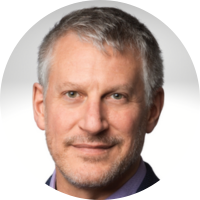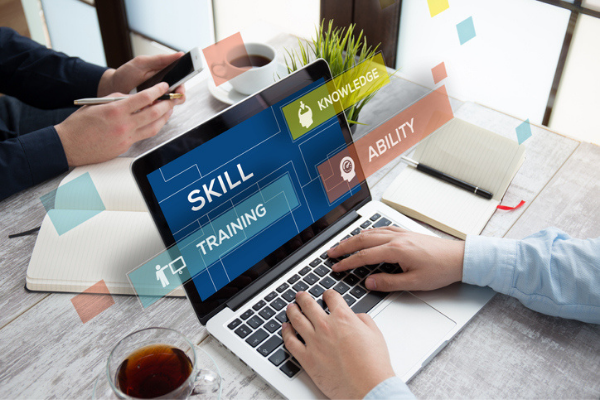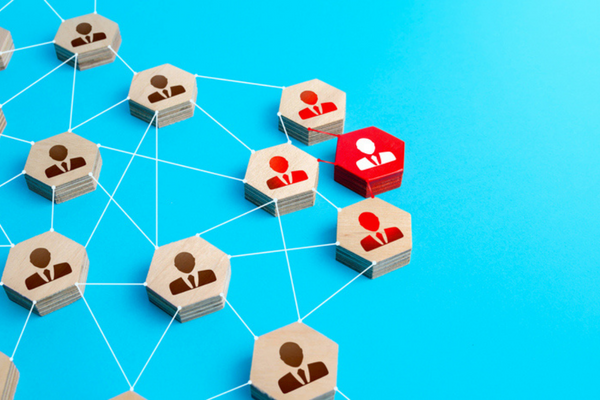
Key Takeaways:
- Larry Hamann shares his thoughts on what makes a successful team leader
- How Hamann's family history has influenced his leadership style
- Technology trends Hamann is on the look out for and how they will affect the growth of Takeda Pharmaceuticals
You have held senior leadership positions at Bristol-Myers Squibb, Novartis, Celgene, and now, Takeda. What’s the toughest part about that first year with a new company?
It perhaps goes without saying that the most immediate priority when coming into a new organization is learning the science and the people. Relationship building is a requisite first step, as trust will come to you more slowly and heterogeneously without it.
It’s also really important to develop the framework of a plan rather quickly for what one wishes to accomplish in the first 3-6 months, the first year, the first 3-5 years. Irrespective of what diligence you’ve done prior to accepting an offer, there are practical realities in any organization that only become visible once you’re on the inside. So, part of the challenge in that first year is a reality check in aligning that strategic vision with the current capabilities of the existing team and organizational structure, and implementing modifications where possible to get everything and everyone moving in the same direction.
This includes a gap analysis and winning over allies within the organization, both on the team you’re leading as well as collaborators who share and embrace the vision and are going to be instrumental in getting things done. It really pays to listen well here too – your original vision was likely created in the abstract before you truly knew the organization, and it may have seemed perfect to you there, but your team will help refine it in the contextual reality of the new organization.
Surrounding yourself with people who will tell you the truth, even when it is difficult, is important. It also includes assessing the talent within the team, where there may be people capable of taking on much more than they have historically been given the opportunity to do, and where there may be individuals who have wound up in a role that is not well matched with the directions you are wanting to head, but still quite valuable to the organization.
Establishing priorities for key external hires to round out the team, assuming you have some headcount to fill, is also important, as this can take some time, particularly for strategic roles in highly competitive markets like Boston and San Francisco. And finishing where I began – as with any new role, building trust and mutual respect and productive relationships with people up and down the organization is essential. This can be particularly challenging where teams are broadly distributed geographically (or during a pandemic), as there is simply no substitute for face-to-face relationship building.
A key responsibility of yours is to lead teams at Takeda. What makes for a successful leader of teams?
Leader is the key word there – not manager. First and foremost, in the biopharma industry a leader needs to remain scientifically relevant and up-to-date. The leader doesn’t need (nor would it be ideal) to be the one coming up with all the ideas, but they should be able to contribute significantly to the discussion, and readily understand and assimilate input from the teams and other domain experts in order to make well-reasoned judgments about priorities and the work plan to enable the strategic vision.
Engaging with the teams as a scientist first, and a leader second, will foster a sense of shared purpose, and the healthy scientific debates will bring transparency to the entire process. Without this deep scientific engagement and transparency, the situation will lend itself to the politicization of science, and the leader risks being unduly swayed by the loudest or most articulate voices in the room, instead of a more rigorous plan based on sound scientific judgment. Overall, having a high EQ, and understanding personal dynamics and team members’ motivations and aspirations is paramount.
How has your family influenced your leadership style?
Certainly, in many ways, whether consciously or not. I grew up as the second of three brothers, just outside of Detroit, and some of the proverbial stereotypes about the middle child are probably true – the desire to please others, be a peacemaker, build bridges, etc. It shaped me as an inclusive leader, broadly welcoming others’ input.
I was also somewhat on the rebellious side, questioning authority, not simply accepting the world as it is, but thinking how certain things could be better, and trying to change things where possible.
My father was a financial analyst, and my mother was a nurse, though she became a stay-at-home mom after having children, so we were lower middle-class. My father died of glioblastoma at the age of 45 when I was only 10, and my mother went back to work.
This marked a rather sharp inflection in my independence and maturity, out of necessity. Very likely I have her to thank for much of my personality and other genetic traits, as they seem to align more strongly with her than with my father, in contrast to my brothers. She is a super-smart lady, still sharp as a tack approaching 90, and tough, having survived 2 cancers herself, as well as living with celiac disease, rheumatoid arthritis, and recently a broken hip. She skipped a grade in high school, and then was appointed the head nurse on the ICU floor of the hospital on her first day on the job. I am sure that had she grown up a couple decades later, she would have become a physician, and had an even more fulfilling career. I feel fortunate to have had the opportunity to get where I have gotten, due in part to the sacrifices she made, and try to remember that every day, and not take anything for granted.
What’s the one thing you wish you had learned earlier in your career?
So many things, it’s really hard to pick just one. Impostor syndrome is something I have had to deal with my entire life. It never really goes away; you just learn to recognize it in situations when it emerges and how to deal with it, so it doesn’t control you. The sound of that inner voice is unmistakable, and you get better at hearing it and simply turning down the volume. I’m reminded of a famous quote by the novelist and poet Charles Bukowski – “The problem with the world is that the intelligent people are full of doubts, while the stupid ones are full of confidence”.
Regarding your early career research team members (i.e., 0-5 years’ experience), what is most important for them to accomplish in their first five years if they wish to be considered for advancement/promotion opportunities at Takeda?
I would tell anyone in that early career situation in our industry not to think so much about rapid career advancement, and instead focus on getting important things accomplished. The advancement will come naturally with such accomplishments, and they will follow you everywhere you go in your career (it’s rare, and even unhealthy, for someone to stay their entire career in one organization these days).
There is a sharp learning curve when making the transition from academia and first starting out in industry, and really making the most of the opportunity to learn from colleagues and mentors is crucial. Academic research tends to be far more narrowly focused, and the holistic science of drug discovery is vast and expansive, with so many interconnected aspects.
Definitely don’t try to play it safe by deliberately aligning with a project that appears to be a guaranteed success. Take the longer view and focus on challenges that will provide maximal learning that will serve to cement a solid foundation for everything that comes after in your career. Identify mentors other than your supervisor who are patient and generous with their time, and who can help you prioritize things and assimilate all the wealth of information you will be bombarded with and put it into a contextual framework.
What technology trends are you following most closely, with an eye toward how they may impact the work of your scientists, and your company’s growth?
There are several, but I will focus on four here: protein degradation therapeutics, RNA modulating small molecule therapeutics, cryo electron microscopy (cryo EM), and machine learning/artificial intelligence (ML/AI). Protein degradation therapeutics are not new. There are a number of examples of very efficacious drugs that have made such a strong favorable impact on the treatment of human disease for more than a decade. However, with our ever-deepening understanding of how to leverage the cellular machinery more purposefully and effectively for protein degradation through both molecular glues and heterobifunctional degraders, these are becoming attractive, mainstream approaches because they open up large areas of the historically undruggable proteome for targeting. And because they can have profound effects that are not entirely driven by occupancy or functional inhibition of the target, the pharmacokinetic to pharmacodynamic equation is favorably changed (degraders are stoichiometrically catalytic).
Likewise with RNA binding small molecule therapeutics. Having the ability to correct aberrant splicing or prevent expression of a given target that may lack a readily ligandable pocket is a game changer. Both of these approaches have been clinically validated, and many large pharma companies and dozens of biotech start-ups are pursuing these, collectively constituting somewhat of a renaissance in small molecule drug discovery.
A key technology that is enabling these two aforementioned modalities as well as more traditional approaches is cryo EM. With the pace of advances in this structural biology tool, atomic resolution structures are now more routinely possible with much faster speed and at lower cost, and this technique is eclipsing x-ray crystallography as the primary method for protein structure determination to guide structure-based drug discovery.
Applications of ML/AI certainly garner a great deal of attention in the media – though for good reason – they underpin almost every aspect of contemporary drug discovery: target selection, patient population segmentation, ligand design, prediction of protein structure, virtual screening, etc., and being able to leverage these ever-evolving tools more fully will certainly lead to more effective and safer drugs. They can codify aspects of phenotypic biology into the better predictable laws of physics, upon which they are ultimately based anyway.
With respect to your scientists at Takeda, what non-technical skills do you most highly value?
The relentless pursuit of excellence, honesty, enterprise level thinking, humility at the wonder of science, emotional intelligence. Drug discovery is incredibly difficult, and despite all the amazing advances I’ve witnessed in the nearly three decades of my career, there is still a very high failure rate, and the remedy is not conservatism, but rather greater rigor and perseverance.
Our early career scientists today must be so much smarter and more knowledgeable than what was the norm even a decade ago, in order to keep our field advancing. Likewise, however much we think we know now will be laughable ten years from now, so we all must keep looking to the next challenge that appears slightly impossible today, especially on the heels of a success.
Our scientists have to approach difficult problems rigorously, as even seemingly small details that are overlooked, or corners cut will most likely come back to bite you in the end. If we don’t approach our science with brutal honesty, things will unravel eventually. Colleagues are not your competitors. Having a mindset where everyone’s contribution is valued, and all team members get the opportunity to contribute to the very best of their abilities will make for more cohesive teams and shared successes.
Similarly, and especially in larger organizations intrinsically prone to developing silos, scientists who are enterprise level thinkers and strive for making scientific connections across the organization to boost the overall institutional competency will benefit the organization both scientifically and culturally.
Lastly, and perhaps most important, is emotional intelligence. Drug discovery is a team sport, and effective interpersonal and communication skills with an understanding of what drives each of us is critical to success. Being able to read others and see others’ points of view, with empathy and understanding, will make us better team members, colleagues, and mentors, and in the best organizations these will factor into leadership behaviors to advance careers.
What are some personality traits that have been most instrumental in your career success?
Optimism is one that immediately comes to mind. You have to believe that difficult things are possible, and through perseverance and diligence, staying focused on the critical path, that your efforts will be rewarded. Innovative therapies do not come without some boldness and risk taking. If one expects to fail because this is the norm in drug discovery, one will play it safe and avoid necessary risk taking, never deviating from the consensus, with the mindset that “no one could blame us – we did all the logical (defensible) things” when the failure is finally realized.
Optimism also means believing one’s best work and best days are still ahead. I never want to be the one dwelling on a success, stuck in a victory lap while others are continuing to run forward to the next challenge.
Quantitative thinking is another key aspect. I have seen quite a number of failed drug candidates where the molecule checked all the boxes in the target product profile, but when viewed as a whole the pieces didn’t add up. A reverse translational mindset – thinking backwards from what a molecule needs to achieve to be a minimally approvable drug, differentiated from the standard of care, or best-in-class are different bars to clear. Being an active, attentive, and empathetic listener has also been helpful for managing teams, and a necessary first step in problem solving and resolving inevitable conflicts that arise from time to time.
If you had to pick one piece of advice to live by, what would it be?
Life is short, live without regrets; question everything, change the rules.
What have you learned about yourself since the start of the pandemic?
We have all struggled to varying degrees to retain our sanity and keep our science moving forward during the past 15 months or so, but much of what we’ve done falls under the category of coping, not thriving. When I imagine the struggles that others must be facing, I consider myself fortunate. That said, I am far more effective at my job when I can be present face-to-face in real time. The science of drug discovery can’t be structured into an endless string of video calls. The spontaneity of hallway conversations and being better connected to people, both scientifically and personally, is a big part of what drives success in our challenging field, and a return to some normalcy is slowly taking place.
Prior to the pandemic, my work necessitated me to be traveling >50% of my time, which was both exhilarating and exhausting. While I often fed off the energy of keeping up that pace, it didn’t always leave as much time for thinking and finding a better balance. The reexamination of one’s priorities that this situation has afforded has its merits. I don’t imagine ever going completely back to that crazy travel schedule, but I do miss some travel.
Having spent your undergrad and graduate years in Michigan universities, we are going to wave a wand and grant you any ONE of the following. Which would you like?
- Michigan beats Ohio State in the NCAA College Football National Championship Game.
- Detroit Lions win the Super Bowl.
- Detroit Red Wings beat the Chicago Black Hawks in Stanley Cup Finals.
- Detroit Tigers beat the Chicago Cubs to win the World Series.
This one’s easy – 1.

Larry Hamann is currently Global Head, Drug Discovery Sciences at Takeda Pharmaceuticals, with responsibility for Medicinal Chemistry, Structural Biology & Biophysics, Biochemistry, Proteomics, Early Target Discovery, Computational Chemistry, Computational Biology, Systems Engineering, and Global Research Externalization.
Most recently, Larry served as Corporate Vice President and Global Head of Small Molecule Drug Discovery and Cambridge Site Head at Celgene. In his 29 years of drug discovery, he has led or overseen teams responsible for more than 18 clinical stage compounds, including the FDA approved DPP4 inhibitor saxagliptin (Onglyza™) for type II diabetes, and the FDA approved first-in-class HCV NS5A inhibitor daclatasvir (Daklinza™) for hepatitis C, as well as a number of molecules currently in clinical development for hematologic malignancies, solid tumors, and autoimmune and neurodegenerative diseases.
Prior to Celgene, Larry held various roles at Novartis and Bristol-Myers Squibb, and began his career at Ligand Pharmaceuticals. Larry is co-inventor on > 70 patents, co-author on > 80 scientific publications, and serves as a standing member of the NIH Study Section for Synthetic and Biological Chemistry.
In August of 2017, Larry was awarded the American Chemical Society’s Heroes of Chemistry Award for contributions to the discovery of the pioneering hepatitis C drug, Daklinza®. Larry holds a BS in Chemistry from the University of Detroit and a PhD in Organic Chemistry from the University of Michigan.
This article has been edited for length and clarity. The opinions expressed in this article are the author's own and do not necessarily reflect the view of their employer or the American Chemical Society.
Copyright 2022 American Chemical Society (All Rights Reserved)












